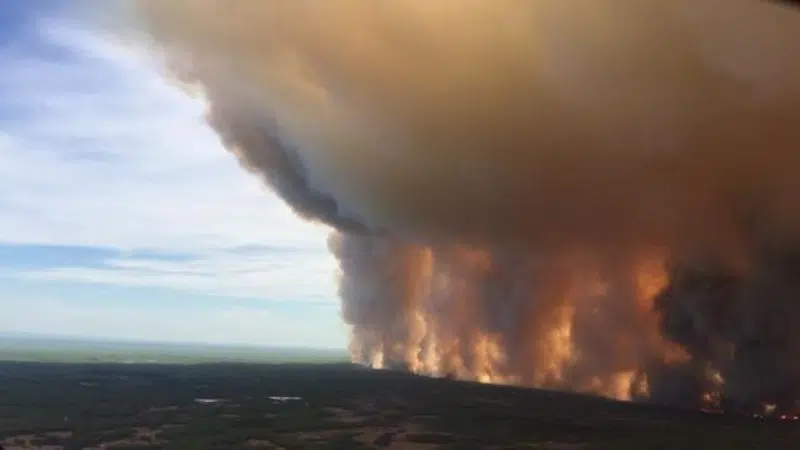
Growing wildfire prompts evacuation of High Level, Alta.
HIGH LEVEL, Alta. — A northern Alberta town and a nearby First Nation are being evacuated due to the threat of an encroaching wildfire.
Thousands of people are being told to leave High Level, as well as the Bushe River Reserve, via Highway 58 east of the communities since highways south and west have already been closed due to the blaze.
The Chuckegg Creek fire has been burning for several days, but grew substantially from Sunday, when it covered about 25,000 hectares, to an estimated 69,000 hectares on Monday.
